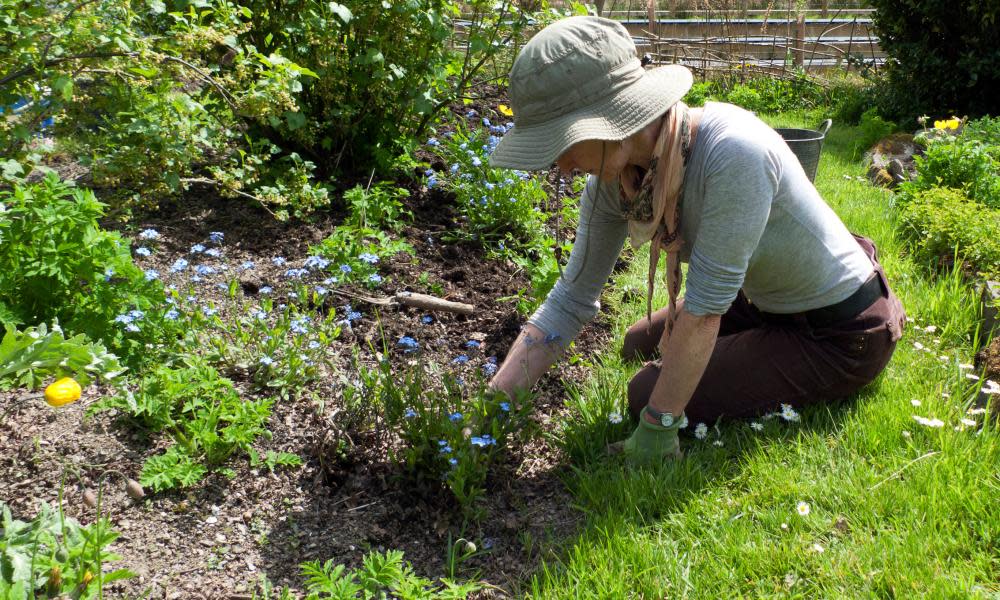RHS asks gardeners to find interesting ‘weeds’ that may be rare plants

Record the “weeds” that pop up in your garden because they could be a rare plant, the Royal Horticultural Society has said.
Private gardens in the UK may be an untapped source of scientific discovery, according to the RHS’s new ecologist, because “scientists can’t just go into people’s gardens”.
Instead, Gemma Golding, who started working for the charity late last year, wants gardeners to look for interesting species and submit them to the iNaturalist app for scientists to analyse.
This is because what may be viewed as a weed could be a rare plant, or growing in an unusual place where it has not been recorded before.
The organisation has changed its attitude to previously unwanted visitors to the garden, last year announcing it would no longer class slugs and snails as pests. Britain’s leading garden charity said that although the gastropods were the garden visitor about which they received most complaints, they should be considered an important part of the garden ecosystem.
The RHS has been following the method in its own gardens and recently found the nationally scarce wood cricket by the river at Wisley in Surrey. The silver-washed fritillary butterfly, which is of conservation concern, has been discovered on specific plants at Rosemoor in Devon.
Golding is inspired by the ecologist Jennifer Owen who for 30 years studied what she found in her urban garden in Leicester, mapping 2,673 different species of flora and fauna, including 474 plants, 80 types of spider and 445 moths.
“Definitely take pictures of new and unexpected plants – sometimes known as weeds – in your garden,” Golding said. “Take a picture and send it in so we can identify it. Once it’s ID’d you can find out a bit more about it because now you know what it is, and you can get a bit of understanding of what it is. Is it important, is it something a bit rarer? Are you really fortunate to have this plant in your garden?”
The scientists are interested in all garden wildlife including animals: “And even a bird for example, if you start to show a bit of interest, and you think, oh, maybe I’ll just upload this to iNaturalist and I’ll see what it is, you might start to find that you might have a bird that maybe wouldn’t be expected to be there, or that you know was a bit rare and that’s really interesting and really important data to have, because you can’t just go walking through people’s gardens when you do surveys.”
Golding said learning more about the ecology in your garden can help you naturally deal with a slug overload or other problems: “I think sometimes if you have a lot of, for example, slugs and snails or whatever it might be, that you also have a bit of an ecosystem imbalance. So you might be able to do something in your garden. It may be that you have a lack of something which can predate on it.”
While once gardening was somewhat of a battle against nature, and a curation of new, exotic plants, people are now working with the native plants and animals that appear in their gardens.
“Definitely, the last five years that I’ve seen, people are just more interested and more keen, and they understand the value of nature,” she said. “People like having birds come to their garden, people have even bought nest cameras so they can see what’s in there. I think views have definitely changed.”


